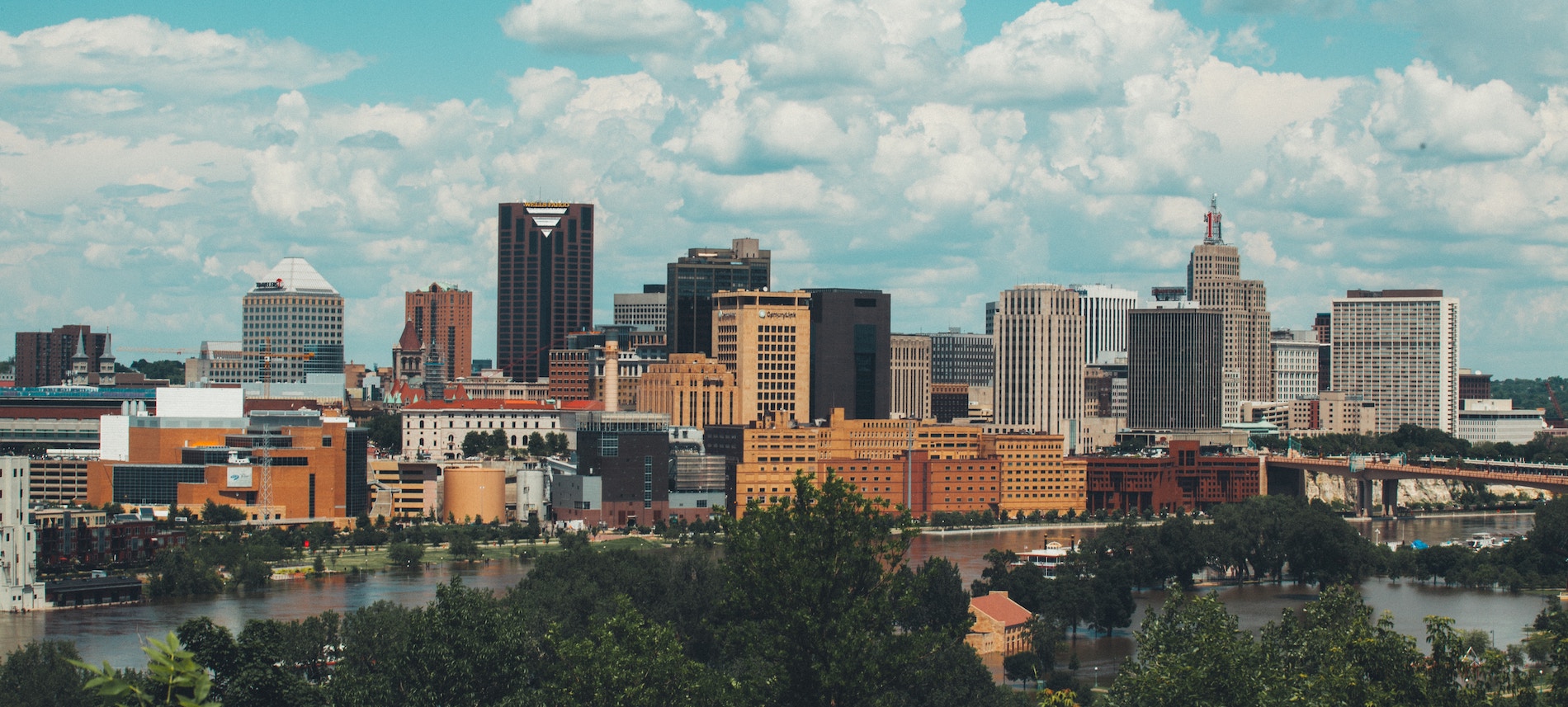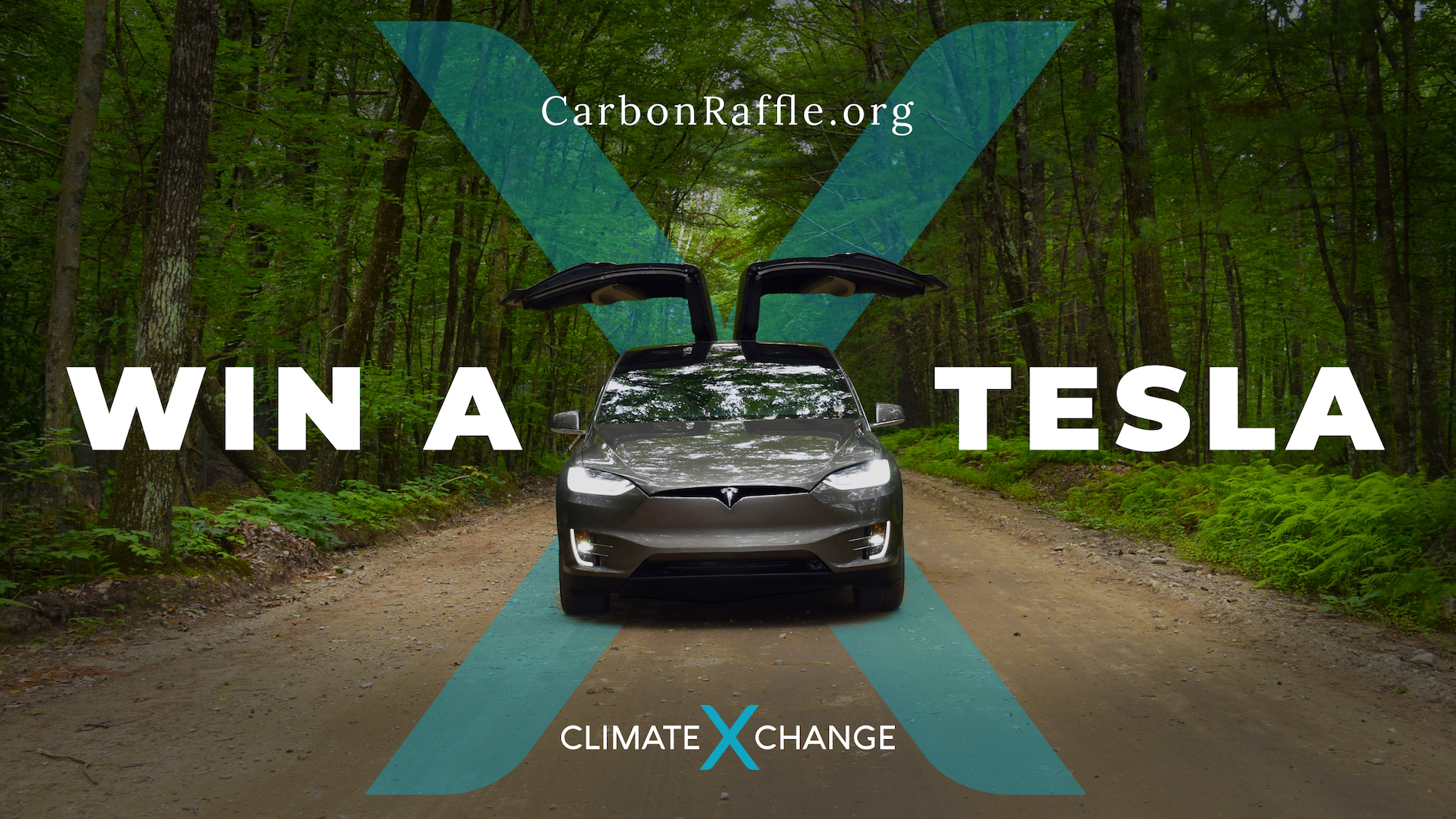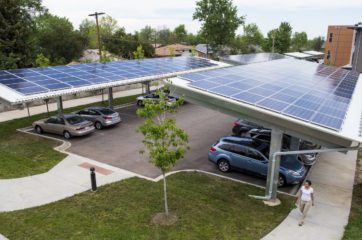Minnesota — the second fastest-warming state in the country — is moving swiftly to address the climate crisis. On Monday, December 2nd, Governor Tim Walz signed a climate-focused Executive Order calling for the state to create two new government bodies: 1) a Climate Change Subcabinet and 2) a Governor’s Advisory Council on Climate Change. Just hours after the gubernatorial announcement, the Minneapolis City Council declared a climate change emergency, indicating the state’s capital city is on the same page as Walz’s administration.
Governor Walz’s Subcabinet will bring together different state agencies to identify policies that will put the state on track to achieve its emission reduction goals, which the state is currently not on track to meet. In 2007, Minnesota enacted the Next Generation Act, which mandated the state to reduce its emissions by 30% by 2025 and 80% by 2050 (from 2005 levels). The state fell short in reaching its intermediate 2015 goal, and is currently not on track to meet its 2025 targets either, according to Frank Kohlasch, the Pollution Control Agency’s Environmental Programs Manager.
Fresh Energy, a nonprofit leading Minnesota’s clean energy transition, is one of many climate organizations that has praised the Executive Order.
“Governor Walz is exactly right when he says that tackling the climate crisis demands bold thinking and deep collaboration,” said Michael Noble, Fresh Energy’s Executive Director, in a statement. “Today’s executive order once again demonstrates Governor Walz’s commitment to leading on climate in a way that brings Minnesotans together.”
At the same time, the Minneapolis City Council passed a resolution stating the city must take further action to reduce its carbon footprint. The resolution, put forward by Council Members Cam Gordon and Jeremy Schroeder, cites natural disasters and increasingly warmer temperatures as evidence of a climate emergency.
A Closer Look at the Executive Order
Governor Walz’s Executive Order calls for a Climate Change Subcabinet that will identify policies and strategies to put Minnesota on track to achieve its emission reduction goals, and reach 100% clean energy by 2050. These policies must also enhance the climate resiliency of the state’s natural resources, working lands and communities, and “assist the state’s enterprise, families, businesses and local communities to prepare for climate change impacts.”
Climate change threatens the very things that make MN a great place to live. That’s why I’m signing this Executive Order to create a Climate Change Subcabinet — bringing state government agencies together to implement bold, collaborative action on climate change. #OneMinnesota pic.twitter.com/iAvUIusk7y
— Governor Tim Walz (@GovTimWalz) December 2, 2019
Particularly noteworthy is that the order calls for a robust public engagement strategy, ensuring that frontline communities, indigenous people, and workers can participate in the policymaking process. The Subcabinet will “develop a public engagement framework” that builds partnerships and understanding across tribal nations, agriculture, transportation, business, conservation, and environmental groups.
It will be comprised of the leading officials from various state agencies, including: Environmental Quality Board (EQB), Department of Commerce, Department of Labor and Industry, Department of Management and Budget, Department of Employment and Economic Development, Department of Agriculture, Department of Public Safety, Department of Natural Resources, Department of Health, Department of Transportation, Board of Water and Soil Resources, Department of Administration, Metropolitan Council, and the Minnesota Housing Finance Agency. Collectively, they must submit a written update to the Governor on December 1, 2020.
The Order also establishes a Governor’s Advisory Council to advise the Subcabinet. This Council will be comprised of 15 members, appointed by the Governor, who will represent community leaders, agriculture, conservation, environmental protection, and other relevant sectors. The Advisory Council will meet quarterly and promote equity and a just transition for impacted workers and communities.
Minnesota has the chance to lead the Midwest
In 2018, Minnesota became the first Midwestern state to introduce carbon pricing legislation, when Senator John Marty put forward policy that would put a gradually-increasing fee on carbon pollution. Since then, momentum for climate action in the region has tremendously increased, and several Democratic Governors have taken the lead on the matter.
Alongside Minnesota, three other Midwestern states — Minnesota, Wisconsin, Illinois, and Michigan — have joined the U.S. Climate Alliance, a bipartisan coalition of governors committed to reducing emissions consistent with the goals of the Paris Agreement.
- Wisconsin Governor Tony Evers signed an executive order in August calling for the state’s energy usage to be 100 percent carbon free by 2050, making the state the first in the Midwest with a 100 percent clean electricity commitment.
- Michigan recently established a new Office of Climate and Energy that will work to reduce the state’s emissions. Governor Gretchen Whitmer has stated she will prioritize addressing climate change, but Republican majorities in both the House (58-52) and Senate (22-16) will make strong climate policies difficult to pass.
- Illinois is also well-positioned to act boldly on climate; Democrats hold significant majorities in both the Senate (40-19) and House (74-44), and a coalition of organizations in the state is working to introduce carbon pricing policy by 2021.
Minnesota, with an administration that has dubbed climate change a priority since its campaign, has an unprecedented opportunity to lead the region in this conversation. Recognizing the political momentum for strong action, Climate XChange held its Midwest Carbon Solutions Summit in Minneapolis, convening hundreds of key stakeholders from the Governor’s office, state legislature, and advocacy community. At the Summit, dozens of executive branch officials across the various state agencies that will comprise the Subcabinet, including Kohlasch and the EQB’s Executive Director, Will Seuffert, spoke on the need for urgent action. Farmers, business leaders, conservation advocates, academics, and doctors advocated for a just transition to a clean energy economy.
This Executive Order undoubtedly signals more action to come, and the public engagement process it calls for is a good indicator the policymaking process will be inclusive. If you want to receive updates about climate action in Minnesota and the Midwest more broadly, sign up to receive our weekly newsletter right to your inbox.










